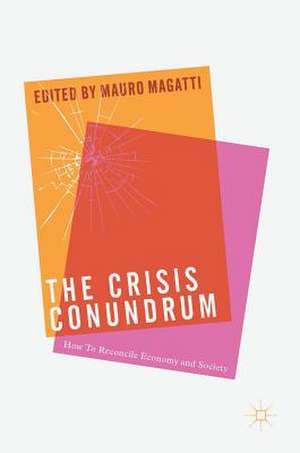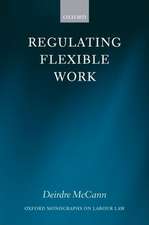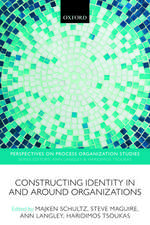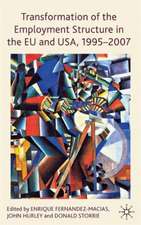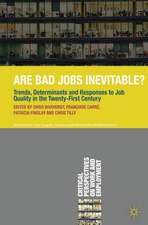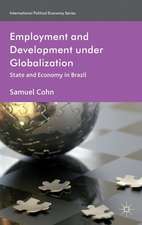The Crisis Conundrum: How To Reconcile Economy And Society
Editat de Mauro Magattien Limba Engleză Hardback – 6 mar 2017
Students and scholars across a range of disciplines, including sociology, economics, development studies and European studies, with find this book of interest.
| Toate formatele și edițiile | Preț | Express |
|---|---|---|
| Paperback (1) | 637.59 lei 6-8 săpt. | |
| Springer International Publishing – 7 aug 2018 | 637.59 lei 6-8 săpt. | |
| Hardback (1) | 643.00 lei 6-8 săpt. | |
| Springer International Publishing – 6 mar 2017 | 643.00 lei 6-8 săpt. |
Preț: 643.00 lei
Preț vechi: 756.47 lei
-15% Nou
Puncte Express: 965
Preț estimativ în valută:
123.05€ • 127.100$ • 101.59£
123.05€ • 127.100$ • 101.59£
Carte tipărită la comandă
Livrare economică 14-28 aprilie
Preluare comenzi: 021 569.72.76
Specificații
ISBN-13: 9783319478630
ISBN-10: 331947863X
Pagini: 252
Ilustrații: XXVII, 254 p. 17 illus., 14 illus. in color.
Dimensiuni: 148 x 210 x 18 mm
Greutate: 0.49 kg
Ediția:1st ed. 2017
Editura: Springer International Publishing
Colecția Palgrave Macmillan
Locul publicării:Cham, Switzerland
ISBN-10: 331947863X
Pagini: 252
Ilustrații: XXVII, 254 p. 17 illus., 14 illus. in color.
Dimensiuni: 148 x 210 x 18 mm
Greutate: 0.49 kg
Ediția:1st ed. 2017
Editura: Springer International Publishing
Colecția Palgrave Macmillan
Locul publicării:Cham, Switzerland
Cuprins
Part I: The Socio-Economic Dimension.- 1. Beyond the Consumerist-Financial Exchange: The Sustainable-Contributory Exchange; M. Magatti and L. Gherardi.- 2. On Income Inequality: The 2008 Great Recession and Long-Term Growth; J. McCombie and M. Spreafico.- 3. European Recession and The Emerging Two-Speed Europe; L. Campiglio.- 4. From One Precariousness to Another. The Ideological Role of Financial Calculation in the Outbreak and Perpetuation of the Crisis: Preliminary Considerations Based on Chapter 12 of the General Theory; M. Amato.- 5. Resocialising Finance to Exit the Crisis, by L. Fantacci.- 6. From Asymmetries to Harmony: a demanding but urgent journey; P. Dembinski.- Part 2: The Socio-Anthropological Dimension.- 7. Escaping the Anthropocene,; B. Stiegler.- 8. Out of the Great Recession: The Conditions for Prosperity Beyond Individualism and Consumerism; C. Giaccardi, M. Martinelli and C. Silla.- 9. A Major Reason for the Present Crisis: The Belief that the Economy Represents the Foundation of Human Society; F. Flahault.- 10. The Need for an Anthropology of Wealth; S. Petrosino.- 11. Democracy Beyond Liberalism: For a ‘Modes de Vie’ Politic; M. Hunyadi.- 12. Global, Universal, Common: Three Notions for a Socio-Cultural Renewal; F. Botturi.
Notă biografică
Mauro Magatti is Professor of Sociology at Università Cattolica del Sacro Cuore, Italy and director of their Centre for the Anthropology of Religion and Cultural Change. His main academic interests are focused on the relationship between economy and society, the role of civic society and globalization and its cultural and economic implications.
Textul de pe ultima copertă
This collection addresses the path to a new prosperity after the Great Recession. The contributors ask that if the 2008 crisis proved the unsustainability of the neoliberal development model, what does well-being mean today in advanced western democracies? What kind of production and consumption will be a feature of the coming decades? What are the financial, economic, institutional and social innovations needed to reconcile economy and society after decades of disembedding? The Crisis Conundrum offers an interdisciplinary interpretation of the crisis as an opportunity to reform capitalism and consumption societies, structurally as well as culturally.
Students and scholars across a range of disciplines, including sociology, economics, development studies and European studies, with find this book of interest.
Students and scholars across a range of disciplines, including sociology, economics, development studies and European studies, with find this book of interest.
Caracteristici
Offers a systemic analysis of the economic crisis Provides possible ways to overcome it Addresses well-being as an economic, political, social, cultural and philosophical issue
